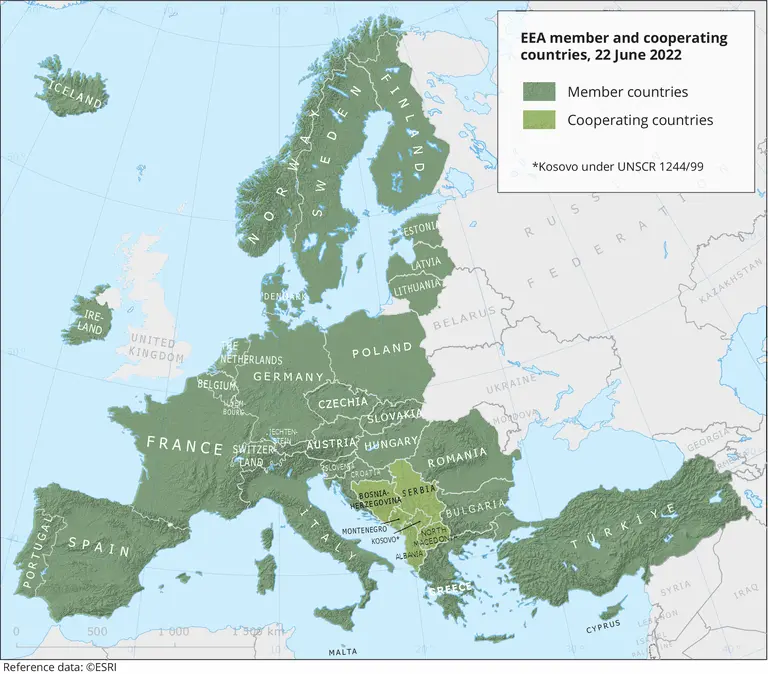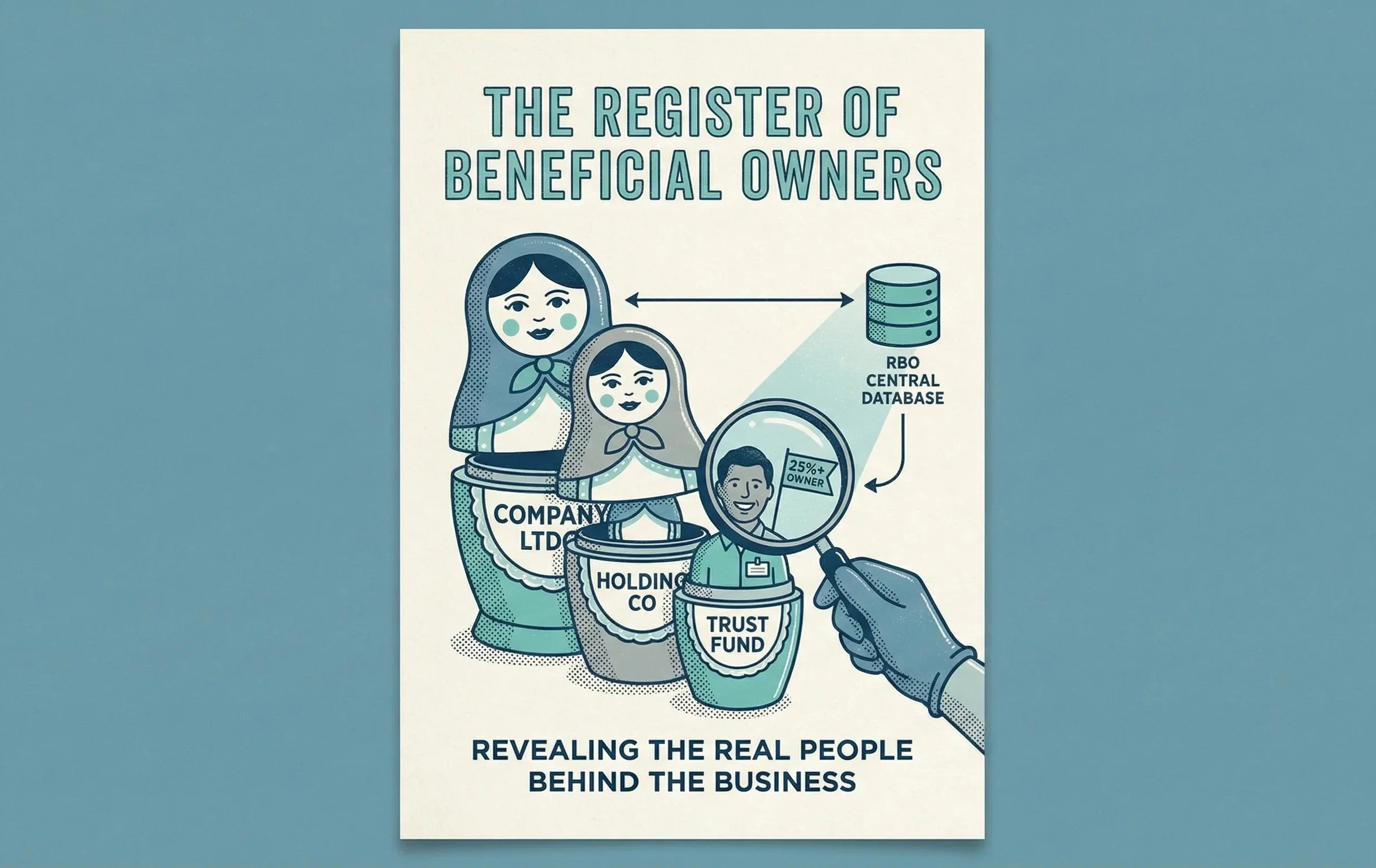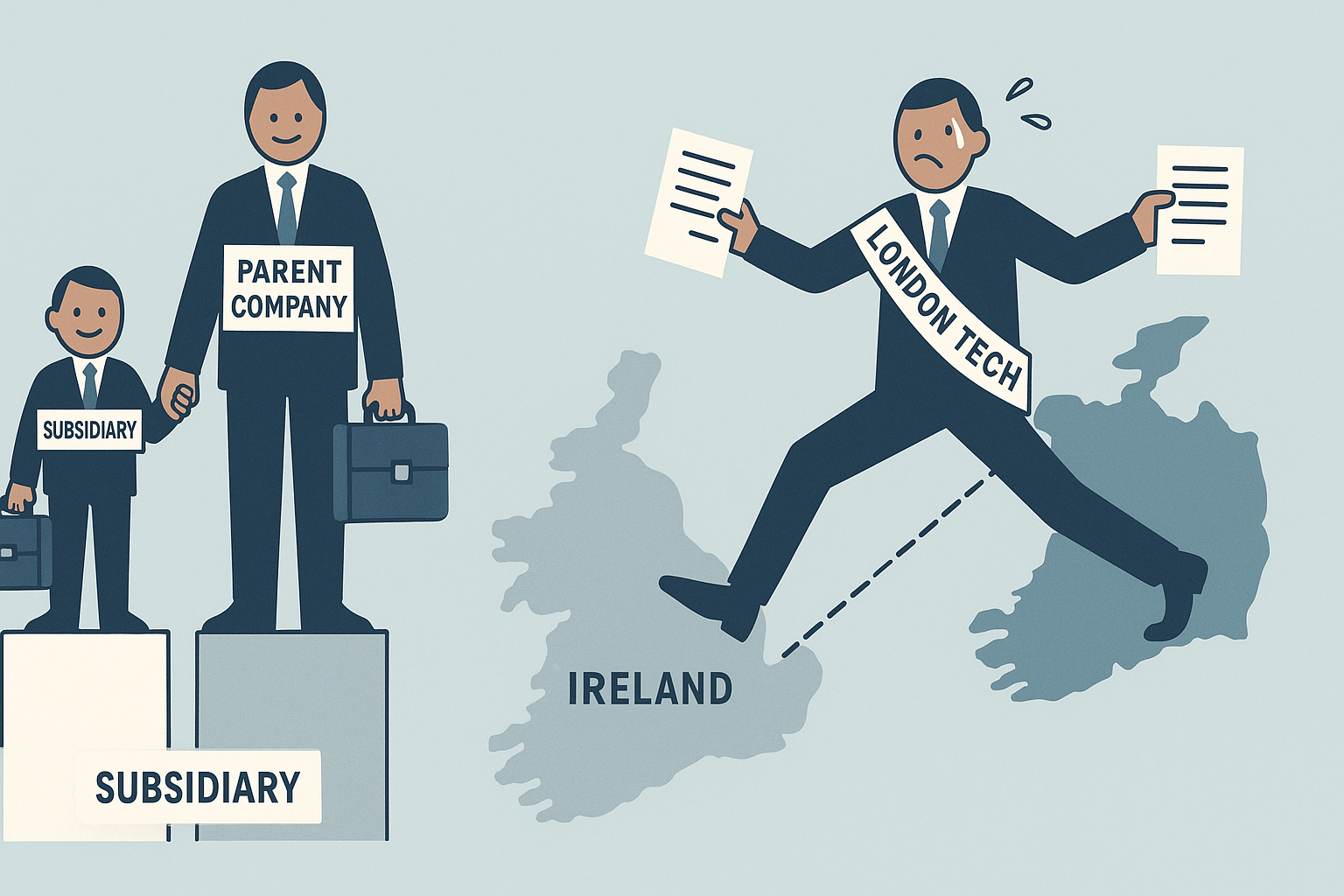Are you an international entrepreneur looking to set up a company in Ireland this year? Our 2025 guide details the steps, EEA director/bond options, identification process, tax benefits and ongoing compliance. Check out the end of the article to estimate your company setup costs.
KEY TAKEAWAYS
- Ireland offers significant advantages for non-resident entrepreneurs including access to EU markets, a 12.5% corporate tax rate, and being the only English-speaking EU member state post-Brexit.
- At least one director must be resident in the European Economic Area (EEA), or alternatively, a Section 137 bond costing €1,500-€2,000 can be obtained to satisfy this requirement.
- An Identified Person Number (IPN) is required for all directors (and shareholders holding 25% or more of company shares), serving as an official identification number for non-residents.
- The Private Company Limited by Shares (LTD) is the most appropriate structure for most businesses, offering flexibility and simplified governance requirements.
- A registered office address in Ireland is mandatory and cannot be a PO box, but virtual office solutions are acceptable provided they offer a physical premises for document inspection.
- The standard CRO processing time for company incorporation is 10 business days, though specialist agents like Open Forest can expedite this to 5 business days.
- Post-incorporation compliance includes tax registration, establishing banking arrangements, and fulfilling ongoing statutory obligations such as annual returns and financial statements.

INTRODUCTION
Establishing a company in Ireland offers numerous advantages for international entrepreneurs and businesses seeking a European foothold.
Our comprehensive guide set out everything non-residents need to know about launching an Irish company.
Whether you're an individual entrepreneur or part of a larger organisation exploring expansion opportunities, this guide is the one-stop-shop for everything you need to know to navigate the incorporation process successfully.
What is a Non-Resident?

First thing's first, does this article apply to you?
When we say non-resident, what we mean is an entrepreneur, or group of entrepreneurs, that not only are not currently resident in Ireland, but are also not resident anywhere in the EEA.
If none of your team are resident in the EEA, then there are some additional steps needed for you to be able to open an Irish company. It's still straight-forward, but there are some hoops to jump through - and it will cost you a bit more.
The Strategic Advantages of Irish Company Formation
Let's get into some of the reasons why Ireland, in particular, is a great option for international entrepreneurs.
Access to the European Market
Ireland provides direct access to the European Union's single market of over 446 million consumers.
This strategic advantage allows businesses to operate freely across all EU member states without facing trade barriers or customs duties that would otherwise apply to non-EU companies.
English-Speaking EU Member State
Following Brexit, Ireland stands as the only native English-speaking nation within the European Union.
This eliminates language barriers for businesses from English-speaking countries, streamlining communication with regulatory authorities, service providers, and potential business partners.
Highly Educated Workforce
Ireland boasts one of Europe's most qualified workforces, with over 56% of 25-34 year olds holding a third-level qualification.
The country consistently ranks among the top nations for quality of education, particularly in technical and business fields.
This talent pool provides companies with access to skilled professionals across various sectors.

Favourable Corporation Tax Environment
Ireland's 12.5% corporate tax rate for trading income remains one of the lowest in the developed world and significantly below the EU average of approximately 21%, the US rate of 21% and the UK rate of 25%.
This attractive tax structure has been a cornerstone of Ireland's economic policy and continues to appeal to international businesses seeking tax efficiency.
Despite constant pressure from larger EU countries and the US, Ireland has continued to keep this low tax rate as it is so important to the Irish economy.

Efficient VAT Registration Process
Irish companies can obtain a VAT number relatively quickly, facilitating business transactions across the EU.
This VAT registration enables participation in the EU's VAT system, allowing for smoother cross-border trade and potential reclamation of VAT charges incurred on business expenses within the EU.

Strategic Gateway for International Expansion
Ireland's established reputation as a business-friendly jurisdiction makes it an ideal launching pad for international expansion.
The country's strong relationships with both the EU and major markets like the US and UK position Irish companies advantageously for global growth.
Silicon Valley of Europe
Ireland has successfully positioned itself as a hub for innovation and technology.
The government actively supports research and development through grants, tax incentives, and collaborative initiatives between industry and academic institutions.
PRE-INCORPORATION CHECKS
If you are already convinced that an Irish company works for your circumstances, then before you jump into it, there are a few pre-conditions that you will have to check off first.

1. Director Residency Requirements
EEA Residency Requirement

The most significant consideration when establishing an Irish company as a non-resident is the director residency requirement.
Irish company law says that at least one director must be resident in a member state of the European Economic Area (EEA). See our interactive list above for the full list of countries.
This requirement serves multiple purposes, including ensuring that there is at least one person physically present within the EEA jurisdiction who can be held accountable for the company's compliance with local regulations.
In Ireland, you can't appoint a company as a director and so this can sometimes present itself as a problem for business owners that have nobody in the EEA who can join the business, even as a non-executive director.
Equally, Irish rules say that no person can have more than 25 directorships (some exceptions apply) so it's really difficult to find a professional director that will stand in as a director to your company - there is just too much risk involved and being a company director is such a serious position that any professional director would have to really spend a lot of time getting to know the business - and so if you did find one, they would likely be very expensive (€4,000+ per year).
The Alternative - Section 137 Bond

For situations where no directors are resident within the EEA and no other solution exists, Irish law provides a practical alternative through what is known as a Section 137 bond.
This provision allows non-EEA resident directors to establish an Irish company by obtaining a surety bond that typically costs between €1,500 and €2,000 for a two-year period (non-refundable).
The Section 137 bond functions as an insurance policy that protects against potential non-compliance with Irish company law.
It provides assurance to the Companies Registration Office (CRO) that funds will be available to cover penalties or fines should the company fail to meet its statutory obligations, such as filing annual returns or financial statements.
Insurance companies authorised to operate in Ireland issue these bonds, and they must be renewed every two years for as long as the company operates without an EEA-resident director. The application process typically requires details about the proposed company, its activities, and its directors.
It does, of course, buy a company two years to come up with a better solution. Then again, it's probably a lot cheaper than paying a local director!
2. Identified Person Number (IPN) Requirement
Understanding the IPN System

Another important preliminary step involves obtaining an Identified Person Number (IPN) for (i) every director and (ii) any shareholder taking 25% or more of the company's shares.
The IPN system serves as the equivalent of Ireland's Personal Public Service (PPS) number for non-residents.
A PPS number in Ireland is a unique identifier used for accessing public services, managing tax affairs, and interacting with government agencies.
For Irish residents, this number is obtained through the Department of Social Protection.
However, non-residents cannot access a standard PPS number but must instead apply for an IPN.
Obtaining an IPN
The IPN application process is personal to each individual stakeholder rather than a company-level procedure and so is done prior to the incorporation process.
Once each IPN is allocated, an individual retains their IPN for all future dealings with Irish authorities, regardless of their involvement with multiple companies.
The application typically requires:
- Proof of identity (passport or national ID)
- Proof of address from the applicant's country of residence
- Verification of the individual's role within the proposed company
You will be required to appear before a notary/solicitor to show your ID and prove your identification.
We have a process where this can all be done online so if you need a IPN as part of your incorporation, you can just progress through our Incorporation forms as normal - no need to go elsewhere to do it beforehand.
3. Registered Office Requirements

Physical Address Necessity
Irish law also says that every company registered in Ireland must maintain a registered office address within the Republic of Ireland.
This address serves as the official location for service of legal notices and communications from regulatory authorities such as the CRO and Revenue Commissioners.
Importantly, this cannot be just a postal box - it has to be a physical premises where company records can be kept and made available for inspection by relevant authorities.
The address appears on the public register, which ensures transparency for those dealing with the company.
Virtual Office Solutions
For non-residents without a physical presence in Ireland, virtual office services can work as a solution.
A virtual office provides a legitimate Irish business address that satisfies the registered office requirements while offering additional services such as digital mail forwarding and sometimes meeting room facilities.
When selecting a virtual office provider, ensure they offer a genuine physical address rather than just a mail forwarding service, as this distinction is critical for compliance with Irish company law.
Tax Implications of Registered Address
The location of a company's registered office can have significant tax implications, particularly regarding the concept of "place of effective management" and "permanent establishment."
While a registered office in Ireland is required for incorporation purposes, the tax residency of the company is determined by where central management and control are actually exercised.
If board meetings occur exclusively outside Ireland and all strategic decisions are made abroad, Irish Revenue might determine that the company is not tax resident in Ireland despite its incorporation there.
This could lead to complex double taxation issues or challenges in accessing Ireland's tax treaty network.
To maximise the benefits of Irish incorporation, companies should ensure they maintain sufficient substance in Ireland beyond merely having a registered address.
This might include holding board meetings in Ireland, employing local staff, or maintaining physical operational facilities.
Open Forest have partner tax advisors that can provide advice relating to your specific situation so reach out to us with your questions.
4. Company Secretary Appointment
Legal Requirements
Finally for the pre-checks, every Irish company must appoint a Company Secretary, who serves as an officer of the company with specific statutory responsibilities.
The company secretary plays a really important role in ensuring the company's ongoing compliance with Irish corporate law.
Where a company has two or more directors, one of them can also be appointed as the company secretary.
However, in single-director companies, the director can't simultaneously hold the position of company secretary, so an alternative is needed.
Benefits of Professional Company Secretarial Services
While technically possible for directors to serve as company secretary, we strongly recommend appointing a professional for some of the following reasons:
- Expertise in Compliance: They specialise in Irish corporate governance requirements and can ensure all your company's statutory obligations are met punctually and accurately.
- Local Representation: Having a professional company secretary provides a local point of contact for regulatory communications and can help navigate any compliance issues that arise.
- Administrative Efficiency: Professional services typically offer comprehensive compliance calendars, reminders for filing deadlines, and systems for maintaining statutory registers.
- Risk Mitigation: With penalties for non-compliance becoming increasingly stringent, professional oversight reduces the risk of inadvertent breaches of Irish company law.
Director's Duty of Care in Appointment
Even though there are no formal qualification requirements, directors have a duty to ensure that whoever is appointed as company secretary has the skills, knowledge, and experience to discharge the role effectively.
When appointing an individual as company secretary (rather than a corporate service provider), directors should verify that the appointee understands:
- Requirements for maintaining statutory registers
- Procedures for filing annual returns and financial statements
- Processes for documenting board and shareholder meetings
- Protocols for updating the CRO regarding company changes
THE INCORPORATION PROCESS
Once you have considered the pre-incorporation checks and can meet them all, it's time for the actual company setup.
Selecting the Appropriate Company Type
For most international businesses looking to establish a presence in Ireland, the Private Company Limited by Shares (LTD) is by far the preferred option.
The LTD structure offers several advantages that make it particularly suitable for non-resident entrepreneurs:
- Limited liability protection for shareholders
- Simplified single-document constitution
- Option to have just one director
- Shareholders can be located anywhere in the world
- No requirement for a specific corporate purpose or objects clause
- No maximum authorised share capital requirement
- Ability to pass written resolutions instead of holding physical meetings
While other company types exist in Ireland (such as Designated Activity Companies, Public Limited Companies, and Unlimited Companies), the LTD structure accommodates the needs of most commercial enterprises and is the recommended choice for international businesses establishing an Irish subsidiary or standalone operation.
Company Name Rules and Restrictions
The CRO enforces various rules regarding permissible company names, but their application of these rules can be inconsistent at best - so don't spend time or money on the name until the CRO approve it.
Key considerations when choosing a company name include:
- Names identical or too similar to existing companies will be rejected
- Names suggesting a connection with government or state bodies require special permission
- Names containing certain restricted words (such as "Bank," "Insurance," or "University") need specific authorisation
- Names deemed offensive or contrary to public policy will be refused
Due to the somewhat unpredictable nature of CRO name approvals, it's advisable to:
- Conduct thorough preliminary searches of the CRO register
- Prepare alternative name options in case your first choice is rejected
- Consider seeking professional advice for potentially problematic names
- Allow sufficient time in your incorporation timeline for possible name rejections
Non-residents should be particularly careful about using names that might be acceptable in their home jurisdiction but could contravene Irish naming conventions or regulations.
The Company Constitution
The Company Constitution serves as the fundamental rulebook for an Irish company, defining its internal governance structure and operational procedures.
The Constitution typically addresses:
- The company's name and registered office
- The liability of members (shareholders)
- Share capital structure and shareholders' rights
- Procedures for transferring shares
- Powers and duties of directors
- Decision-making processes for the board and shareholders
- Rules for calling and conducting meetings
- Procedures for issuing notices
- Dividend and reserve policies
Share Capital Considerations
Understanding share capital structure is important when establishing an Irish company.
Since the Companies Act 2014, private companies limited by shares (LTDs) are no longer required to state a maximum authorised share capital in their constitution, offering greater flexibility.
Authorised vs. Issued Share Capital
Although specifying maximum authorised share capital is optional, companies must determine their initial issued share capital:
- Authorised share capital represents the maximum number of shares a company can issue without amending its constitution
- Issued share capital refers to the shares actually allocated to shareholders
For non-resident entrepreneurs, a pragmatic approach to share structuring includes:
- Issuing enough shares to reflect the intended ownership percentages clearly
- A common practice is issuing 100 shares for each 1% of ownership (10,000 shares total), making percentage calculations straightforward
- While the number of shares is somewhat arbitrary, having sufficient granularity allows for future transfers or dilutions without requiring share splits
The nominal value of shares (typically €0.01 per share) bears little relation to the actual value of the company but serves as an accounting reference point.
The share premium (the difference between nominal value and the price paid for shares) is recorded separately in the company's accounts.
Non-residents should also consider:
- Whether different share classes with varying rights are needed
- Currency denomination (shares can be in any currency, not just Euro)
- Tax implications in both Ireland and their home jurisdiction
Submission to the Companies Registration Office
The final step in the incorporation process involves submitting the application to the CRO.
This submission typically includes:
- Form A1 (application for incorporation)
- The company's Constitution
- Details of directors and company secretary
- Statement of compliance with director residency requirements or evidence of a Section 137 bond
- Information on initial shareholders
- Applicable filing fees
Standard processing time at the CRO is approximately 10 business days from receipt of a complete and correct application.
Upon successful registration, the CRO issues a Certificate of Incorporation, which includes the company's unique registration number. This certificate serves as legal proof of the company's existence and is required for various subsequent procedures, including:
- Opening a corporate bank account
- Registering for tax
- Applying for business licenses or permits
- Entering into contracts
For non-resident entrepreneurs, working with experienced formation agents like Open Forest significantly reduces the risk of application errors or delays and provides invaluable guidance through the nuances of Irish incorporation requirements.
POST-INCORPORATION REQUIREMENTS
As soon as your company is incorporated, you will then be subject to some ongoing requirements.
Ireland is not overbearing with its obligations, but there are a couple to stay on top of.
Beneficial Ownership Filing
Within 5 months from the date of incorporation, all companies have to file details of all of the people that hold more than 25% of the company's shares, i.e. the beneficial owners.
This requirement is part of the global crackdown on anti-money laundering. While Ireland is business-friendly, it is not a secretive jurisdiction and so this filing is required.
It is also an ongoing filing in that should any of your shareholders go above or below the 25% hurdle, a filing will be required.
Tax Registration
Upon incorporation, the new company must register with the Revenue Commissioners for various tax purposes, including:
- Corporation Tax
- Employer's PAYE/PRSI (if employing staff)
- Value Added Tax (if applicable)
This registration is completed through the Revenue Online Service (ROS) and requires specific information about the company's activities, projected turnover, and financial year-end.
We have a partner accountant that can take care of these registrations for you.
Banking Arrangements
Establishing a corporate bank account in Ireland has become more complex due to enhanced anti-money laundering requirements.
Non-resident directors should be prepared for comprehensive due diligence procedures.
Many non-resident companies choose to work with international banks that have a presence in both Ireland and their home jurisdiction, facilitating smoother account opening processes.
We can work with you on this to assist you in getting your bank account opened as efficiently as possible.
Ongoing Compliance Obligations
Irish companies must fulfil various continuing obligations, including:
- Filing annual returns with the CRO
- Submitting annual financial statements
- Maintaining statutory registers
- Holding annual general meetings
- Filing tax returns with Revenue
For non-resident directors, these obligations underscore the value of engaging local professional support to ensure full compliance with Irish corporate and tax laws.
Operational Considerations
Substance Requirements
To derive maximum benefit from an Irish company structure, particularly for tax purposes, businesses should establish genuine economic substance in Ireland.
This might include:
- Employing local staff
- Maintaining physical premises
- Conducting board meetings in Ireland
- Demonstrating that strategic decisions are made within Ireland
The level of substance required varies depending on the company's activities and tax position, but insubstantial "letterbox companies" face increasing scrutiny from tax authorities worldwide.
Employment Regulations
If hiring staff in Ireland, non-resident companies must understand Irish employment law, including:
- Employment contracts and minimum terms
- Working time regulations
- Minimum wage requirements
- Employer's PAYE/PRSI obligations
- Workplace health and safety standards
These regulations differ significantly from those in other jurisdictions, making local expertise essential for compliance.
Intellectual Property Considerations
Ireland offers an attractive environment for intellectual property (IP) management through its Knowledge Development Box regime and R&D tax credits.
Non-resident companies should consider:
- Appropriate IP structures for their business
- Transfer pricing implications of IP licensing
- Documentation requirements for IP-related transactions
- Potential benefits of locating R&D activities in Ireland
Conclusion
Establishing an Irish company as a non-resident presents both significant opportunities and compliance challenges.
By understanding the key requirements regarding director residency, registered office, company secretary appointments, and ongoing obligations, international entrepreneurs can successfully navigate the incorporation process.
Ireland continues to offer a business-friendly environment with access to EU markets, favourable tax treatment, and a skilled workforce.
With appropriate professional support and a commitment to genuine economic substance, an Irish company can serve as an effective vehicle for European and international business expansion.
How Can Open Forest Help?
Open Forest offers the cheapest and fastest incorporation packages in Ireland including holding companies for €99 including CRO fees and access to the Open Forest platform so you can keep track of all of your legal, tax and accounting obligations - at no additional cost.
Choose from one of our incorporation packages here and we will take care of the rest.

Stuart Connolly is a corporate barrister in Ireland and the UK since 2012.
He spent over a decade at Ireland's top law firms including Arthur Cox & William Fry.





.webp)
.webp)
.webp)





